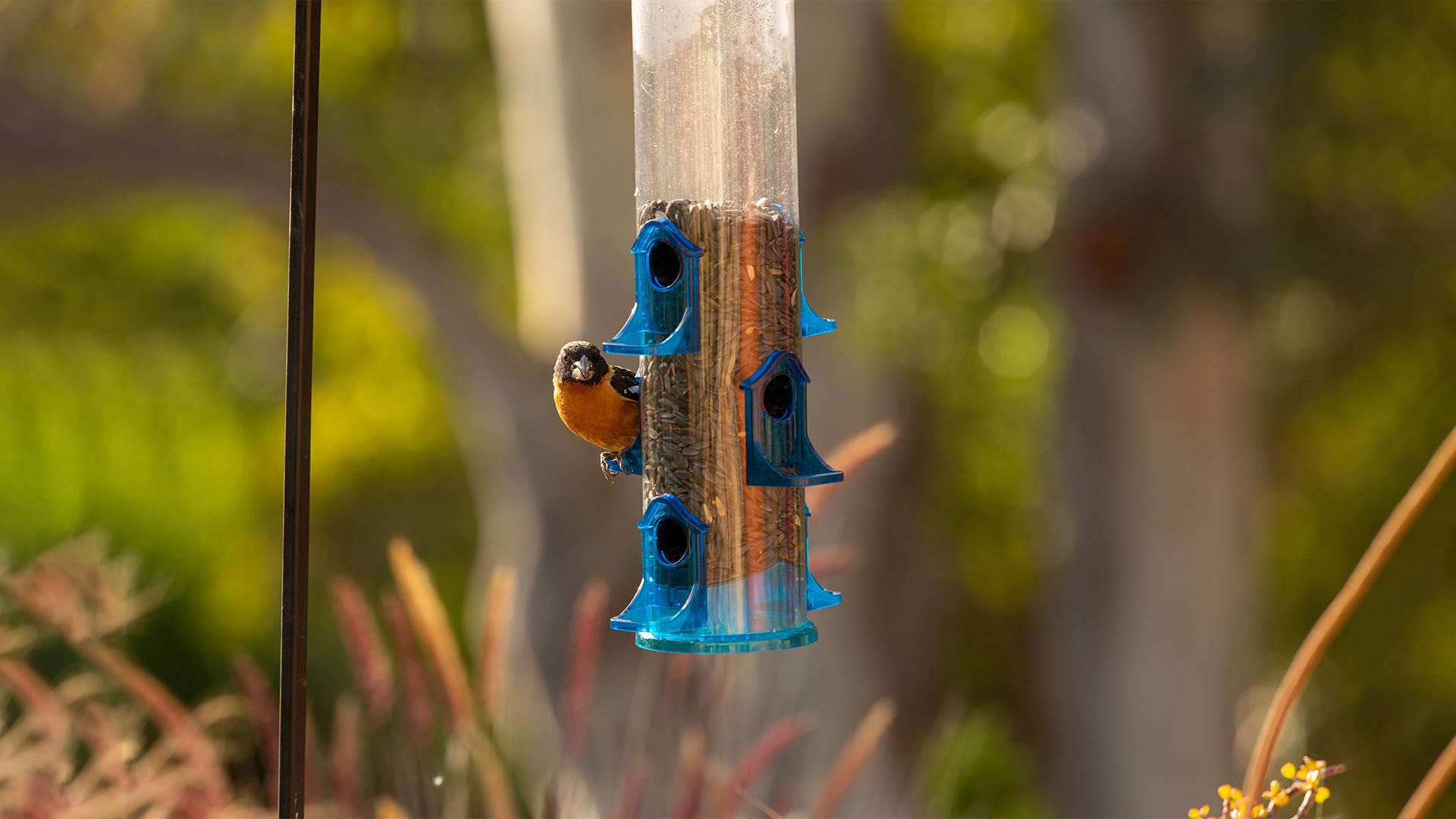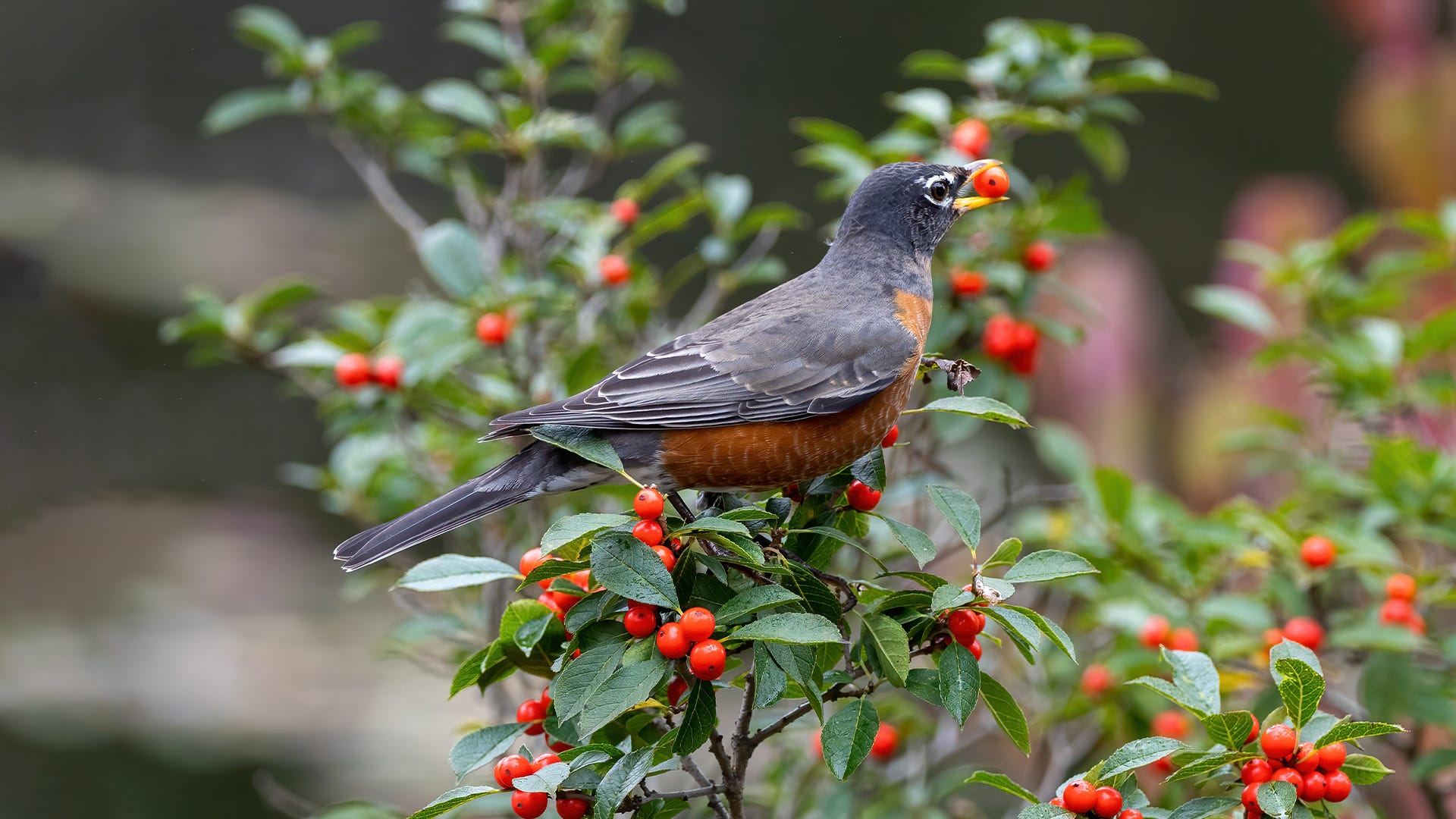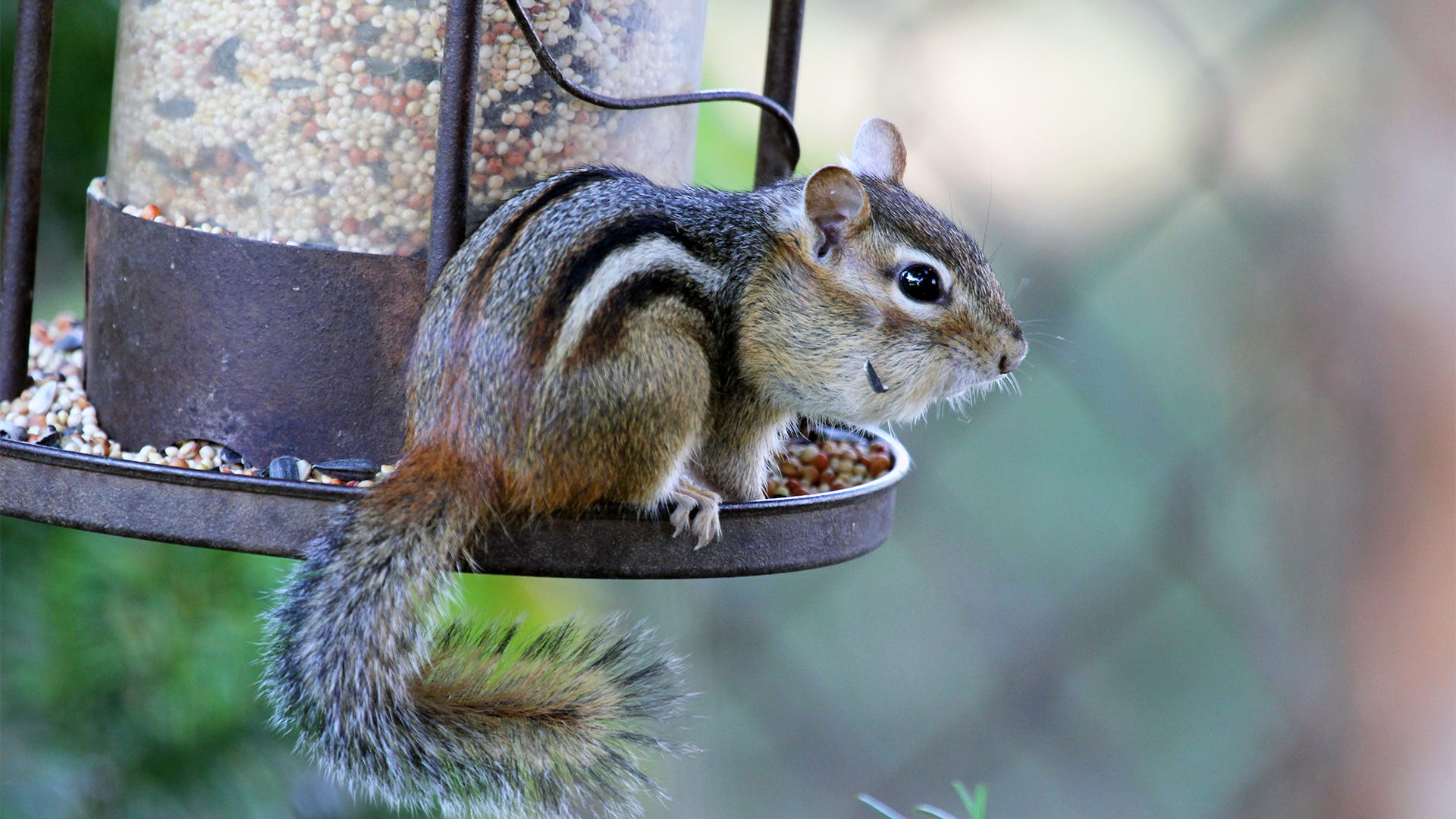
Chipmunks are little and wily, with quick movements, hearty appetites, and curious personalities. They have bushy tails and love nuts, and have soft fur and large eyes. Despite their similarities to their larger cousins, however, chipmunks are actually very different from squirrels. While both critters can wreak havoc on bird feeders, it takes special steps to keep chipmunks out of bird feeders successfully.
What is a Chipmunk?
Chipmunks are members of the squirrel family, Sciuridae. They are cousins not just to familiar squirrels, but also to prairie dogs, woodchucks, and marmots. They are much smaller than squirrels, however, averaging just 8-9 inches long (half of which can be their tails), with much more prominent stripes on their flanks and back. Chipmunks are generally more slender than squirrels. While their tails are still somewhat fuzzy, they are not as bushy as squirrels' tails.
See also: How to Successfully Squirrel-Proof Your Bird Feeders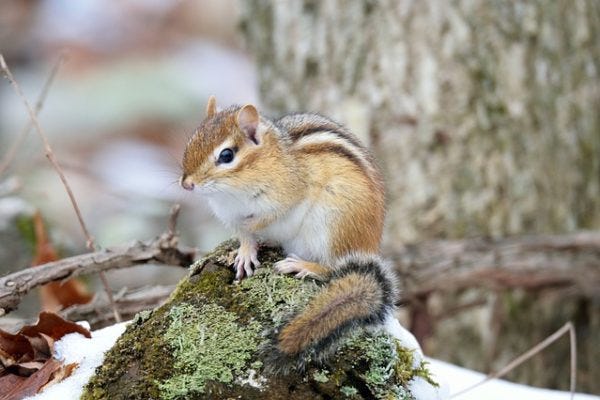
While squirrels are right at home in trees and will run and jump between branches and trunks high above the ground, chipmunks prefer to stay lower and use brush piles, stumps, and logs for shelter and foraging. In general, chipmunks also have shorter lifespans than squirrels. They live only 2-4 years in the wild while squirrels can live 5-7 years.
Both of these rodents raid bird feeders and will gorge on seeds, nuts, fruit, and peanut butter. Chipmunks are more omnivorous than their squirrel cousins. They will stuff their cheeks full of food to take to their underground burrows for storage. Squirrels, on the other hand, are more likely to eat food immediately, though they will bury nuts and seeds as well.
Chipmunks Damaging Bird Feeders
Chipmunks may be smaller than squirrels, but they can still cause big damage to feeders. They will nibble, gnaw, and chew on nearly anything to keep their teeth worn down appropriately. They can chew through feeders made of wood or light plastic, and will also chew on patio furniture, fences, feeder poles, tool handles, and even through wood siding!
In addition to the damage chipmunks can do to feeders, they will also dig up lawns and gardens to find food and excavate their burrows. They may dig up and feast on flower bulbs, and will raid gardens for tender plants and produce. They will even eat small eggs of any birds' nests they may find.
See also: How to Grow a Bird-Friendly Garden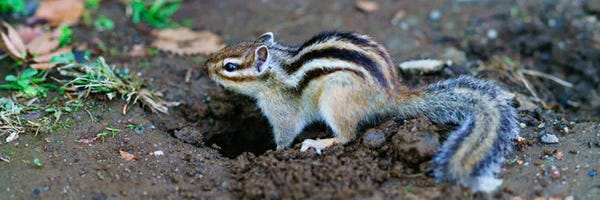
Keeping Chipmunks Away From Bird Feeders
It can be a challenge to keep chipmunks away from bird feeders, but many of the techniques that can be successful against squirrels will also be effective at discouraging chipmunks. Birders should adjust their techniques to account for chipmunks' smaller sizes and ground-dwelling habits, however, in order to be most effective at keeping them away.
- Use thin, metal poles to mount feeders. Chipmunks can easily climb wood posts or trees to reach feeders, but it can be harder to climb on smooth metal.
- Use tight-fitting baffles above and below feeders. Because of these rodents' small size, even small gaps between the baffle and the pole can allow chipmunks to get past the barrier.
- Use nets, platforms, or trays to catch spilled seed so it doesn't fall to the ground where chipmunks will more easily feed.
- Trim under shrubs and bushes to expose chipmunk burrows. If chipmunks feel too exposed, they are more likely to move on to a safer area further from feeders.
- Opt for less attractive seed in the feeders. Both Nyjer and safflower have a bitter taste that can discourage chipmunks, though they may still eat some of the seed.
- Use quarter-inch metal mesh to create a cage on the ground around a feeder. Anchor the cage well and watch for chipmunks to dig beneath it.
- Store seed safely in rodent-proof containers such as metal trash cans or thick plastic with rounded corners that are difficult to chew. If chipmunks can't get to feeders, they may instead find stored seed to feast on.
To be most effective, use several different techniques to discourage chipmunks. Stay alert to more wily behaviors and adaptations these rodents may use to get around barriers and raid bird feeders. Constant vigilance can be necessary to keep these rodents away permanently.
See also: How to Stop Bully Birds from Raiding Your Feeders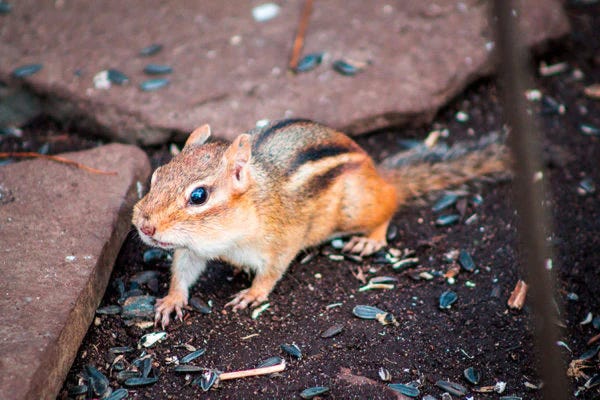
Feeding Chipmunks
In areas with high chipmunk populations, it can be more useful to adopt an “if you can't beat ‘em, join ‘em” attitude and feed chipmunks instead. Providing a dedicated area—well away from bird feeders—stocked with their favorite treats can distract the chipmunks. That way, they will be more likely to leave bird feeders alone. This not only helps support more backyard wildlife, but allows you the opportunity to witness and enjoy the fun personalities chipmunks can bring to your yard.
See also: Top 3 Worst Bird Feeding Mistakes





